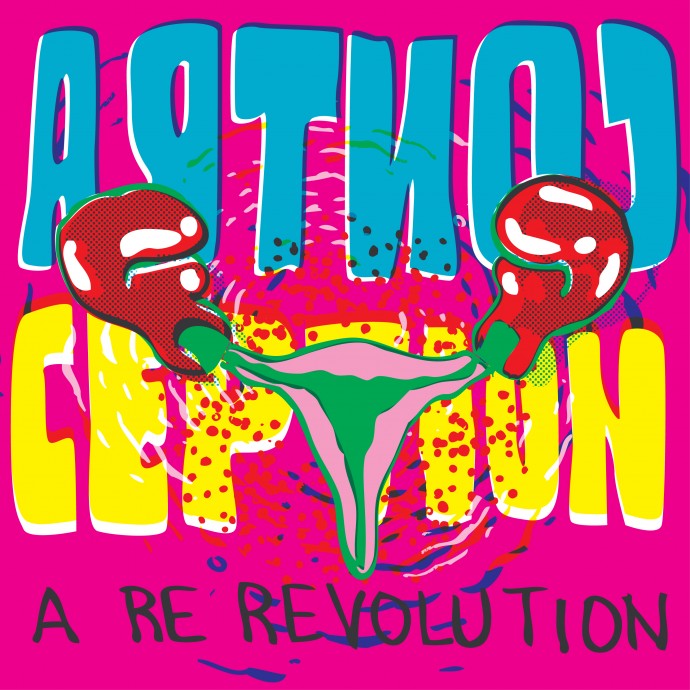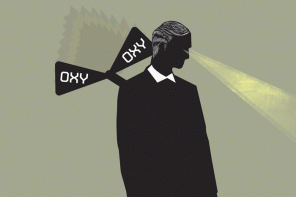The female contraceptive pill was, historically speaking, a huge step forward in the emancipation of women, allowing for more concerted family planning and thus boosting career opportunities. However today, more than fifty years since the pill first became available, more and more young, independent, and health-conscious women are saying no to the pill. In face of the numerous health risks the hormonal pill presents, many women prefer to resort to trusted condoms instead. In a society where it is often assumed a woman will be on the pill, this choice can often be met with incredulousness, but can also be followed up with a lot of rethinking and reshaping. Mona and Cat talk to Sensa Nostra about the reasons why they chose to stop taking the pill, differing attitudes, and hope for future research into non-hormonal contraceptive methods for both women and men.
I stopped taking the pill because I didn’t feel like being on hormones anymore. First of all, there is an increased risk, for example, of breast cancer, due to pumping yourself up with hormones all the time. Two friends of mine have ended up in hospital with pulmonary embolism due to the birth control pill, with one of them doctors were certain she was going to die. The blood clotting issue is especially relevant if Factor V Leiden runs in your family. In that case the emergency morning after pill should also not be taken. Specifically, dangerous brands of the pill have been black-listed (notably Yaz, Yazmin, and the generic Ocella), but I just didn’t want to put myself into even the slightest bit of danger concerning this. Secondly, I wanted to feel like my ‘real’ self again, not a ‘sedated’ version that is on the same hormone level all the time. I don’t love the mood swings, the menstrual pain, or the bad skin, but it makes me feel like everything is alright with my body when I can tell the phases of my cycle without the pill. Plus, one of the biggest reasons for going off the pill was because of the effect it had on my libido that had basically been nonexistent while taking the pill. I felt more like a sedated fish than a sexual being when I was on it.
Historically speaking, the pill can be seen as a liberating and emancipating development for women, but I think its implications have changed nowadays—even though the pill started out as a revolution in women’s ability to take charge of family planning and therefore their entire lives and careers. Science has evolved, but the pill—no matter how much its quality has increased—is still not a harmless drug. It does influence your body and it definitely comes with a lot of risks. I think that we should increase non-hormonal contraception and make progress in this area. Today, most emancipated, higher-educated women that I know do not take the pill. That cannot be a coincidence. I think there has been a turning away from the traditional ‘easy’ way of contraception towards alternatives that do not harm the bodies of women as much as the pill. I’ve heard from female friends who do not take the pill that they quite often face incredulous reactions for making such a choice, and are even considered frivolous. Often people don’t realize or think about the health implications, and that these women are making this choice for the benefit of their own bodies. As long as they take other precautions, by using condoms responsibly for example, they are not being careless or frivolous, so they shouldn’t be treated as such.
I think that the current research into a male birth control pill, or other methods of male contraception (i.e. a procedure rendering semen temporarily infertile) is a great progress. I know of female friends who would greatly welcome their partners undergoing a safe, non-hormonal procedure, in order to not have to take the pill anymore or feel under pressure to do so if they have decided not to take it. However, it is not for everybody. After all, women are the ones faced with pregnancy and I think that they will always have a bigger incentive to use contraception than men. Then again, I think many men will appreciate being able to take responsibility and control over family planning also, avoiding unwanted pregnancies and responsibilities. I do know quite a few guys who would gladly take such measures and I think the development of a male contraceptive pill, as long as it, too, has no negative implications on the health of men, would signify a further step within the framework of equality for both men and women.
I think, for me, an ideal situation in respect to contraception would be the presence of a general consensus that condoms are not an option—they are a MUST when it comes to casual sex. Not only because of unwanted pregnancies, but also to protect oneself from STDs. When I hear my girl friends talk about discussions they have had with men about using a condom in bed, it makes my hair stand on end. Then, I think that research on non-hormonal birth control should increase. As of now, the copper IUD is the only means that I know of. Gynecologists, however, warn of the risks that this method can have for women who have not yet had a baby. If the agreeableness of the copper IUD can be increased, or if there are other methods of non-hormonal birth control, it would be a big step in terms of contraception and towards appreciating a woman’s health more.
Bill Gates is offering a start capital of $100,000 for whoever wants to research into a new style of condoms with a more natural feeling to them. This would encourage especially men to use them rather than to hate on condoms for decreasing sensation—the most common reason for men (and some women) to not want to use one. I think this is a really good initiative, and the best and safest I have heard of so far. I definitely hope research is on its way, for the demand is absolutely present.







